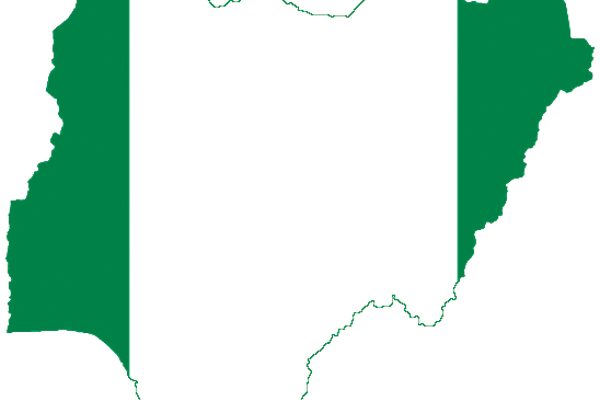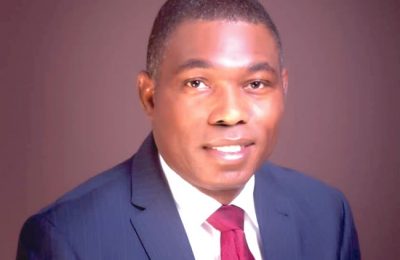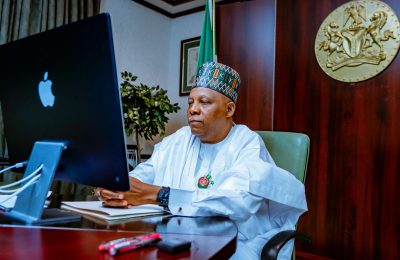NIGERIA, the “Giant of Africa,” faces persistent challenges stemming from its complex political and economic landscape. Among the numerous issues plaguing the nation, the call for restructuring has remained a point for debate and agitation amongst Nigerians for years. It is paramount to study Nigeria’s restructuring debate and fiasco, examine its systemic weaknesses, the failure of centralized governance, and the implications for development, poverty alleviation, and corruption, notwithstanding, it is often believed that restructuring might remain a far-fetched dream for Nigerians. The governance structure in Nigeria has been under criticism for their ineffectiveness in addressing the country’s challenges over the years. According to Transparency International’s Corruption Perceptions Index, Nigeria consistently ranks poorly, reflecting the deeply rooted nature of corruption that has plagued the country’s institutions since independence. The centralized model of governance, which was inherited from the colonials, continues to enable corruption by concentrating power and resources in the hands of a few, thereby facilitating rent-seeking behavior and patronage networks.
This centralized governance can be said to be hindering developmental efforts, as decisions made at the federal level often fail to account for the diverse needs and priorities of Nigeria’s heterogeneous population. For instance in 2019, the World Bank estimates that by 2040, Nigeria’s infrastructure deficit would amount to approximately $878 billion, with high to zero similarities between urban and rural areas. The lack of localized decision-making highlights these disparities, leading to neglect of critical infrastructural projects in marginalized communities. Moreover, without restructuring, Nigeria’s centralized governance system will continue to be poverty and hunger-stricken, particularly, in rural areas where access to basic services and economic opportunities are limited. A World Bank report states that Nigeria’s poverty rate stood at 40.1% in 2019, rising to 49% in 2023, with rural areas experiencing higher poverty rates compared to urban centers which has stifled grassroots development initiatives, promoting cycles of poverty and underdevelopment. I have been studying the decentralized systems of governance used in countries like the United Kingdom and the United States, which empowers local authorities to address community-specific challenges and allocate resources based on local needs. For example, in the UK, local councils have significant autonomy in areas such as education, healthcare, security, transportation, allowing for more responsive and efficient governance. Similarly, in the US, states have considerable authority over matters such as taxation, law enforcement, security, and infrastructure development, resulting in tailored policy responses that reflect the diverse needs of local communities.
Another obstacle that constantly arouses the need for restructuring is Nigeria’s centralized policing model, which is overseen by the central government. This has remained a subject of considerable critique due to its inefficiencies and susceptibility to political interference. Corroborating this, Ifeanyi Onyeonoru, PhD, a specialist in governance and security studies, opined that Nigeria’s centralized policing system has contributed to a lack of responsiveness to local security concerns and a failure to effectively combat crime all around the country. Furthermore, statistics from the National Bureau of Statistics (NBS) reveals that crime rate in Nigeria remains alarmingly high, with constant incidents of robbery, kidnapping, banditry, and cybercrime, persisting across various regions. Many agree that the use of centralized police force hampers efforts to address Nigeria’s security challenges in a timely and localized manner. Agreeing with the above, Onyeonoru notes that this centralized control of the security architecture often leads to bureaucratic red-tape and delayed responses to emerging security threats, further exacerbating feelings of insecurity among citizens.

The management of infrastructure, particularly roads, remains a hassle, reflecting the shortcomings of Nigeria’s centralised governance system. Unlike in countries such as the UK, where local councils are empowered to maintain roads within their jurisdictions, Nigeria’s road network is divided among federal, state, and local council roads. This fragmented approach to infrastructure management has resulted in bureaucratic inefficiencies, inadequate maintenance, poor maintenance, and uneven development across regions. A policy analyst, Chukwudi Enekwechi, PhD, stressed the detrimental effects of this centralized approach on Nigeria’s road infrastructure. Enekwechi argued that the lack of decentralization in road maintenance perpetuates disparities in infrastructure quality, with rural areas often bearing the brunt of neglect. This is seen in data from the Federal Road Maintenance Agency (FERMA) further corroborating these irregularities, revealing the effect of centralization in infrastructure between urban and rural areas.
Enekwechi postulated about the urgent need for decentralized decision-making in infrastructure management, stating that it is more viable for local authorities to prioritize projects based on local needs and realities, without relying on the state or federal government.
Nigeria’s tax system and fiscal centralization represent significant barriers to equitable development and governance. According to data from the World Bank, Nigeria’s tax-to-GDP ratio stands at a mere 6%, significantly lower than the global average of 15%, indicating a shortfall in revenue mobilization efforts. This tax revenue is further worsened by the country’s reliance on oil revenues, which are susceptible to fluctuations in global oil prices.
Uche Uwaleke, a public affairs analyst, highlights the detrimental effects of Nigeria’s centralized tax system on local governments’ autonomy and capacity for development. He states that while the federal and state governments collect the bulk of taxes, local councils are left with limited revenue sources, often dependent on federal allocations for survival. This centralization marginalizes local governments, depriving them of the resources needed to address critical infrastructure needs, healthcare services, and educational initiatives at the grassroots level.

Moreover, Nigeria’s tax system has been criticized for its complexity and lack of transparency, worsening compliance challenges and hindering revenue generation efforts. According to the Nigeria Economic Summit Group (NESG), the multiplicity of taxes at the federal, state, and local levels, coupled with inconsistent enforcement mechanisms, creates an environment ripe for tax evasion and informal economic activities.
Restructuring Nigeria’s governance framework is of utmost importance in addressing the root causes of fiscal centralization and to empower local governments by granting it autonomy. Socio-political groups like Afenifere, Ohaneze, and the Middle Belt Forum have been seen clamoring for restructuring, emphasizing the need to devolve power to the grassroots level and foster inclusive governance. Infact, in 2014, in a National Conference by the administration of former President Goodluck Jonathan, a platform for dialogue and deliberation on restructuring was provided, resulting in comprehensive recommendations for reform.
Even with the clamor, call, and apparent need for restructuring, the actualization of this dream remained far-fetched as it was met with political resistance, particularly from Northern elites who perceive decentralization efforts as a threat to their entrenched interests. This can be seen in the defeat of Goodluck Jonathan in the 2015 presidential election, a well-crafted move orchestrated in part by Northern voting blocs, which stressed the challenges of effectuating substantive governance reform in Nigeria. President Muhammadu Buhari’s dismissal of the 2014 National Conference report further reflects the reluctance of the Northern political elite to embrace restructuring, but rather continued disagreements between the North and South make it hard to move forward and create fair rules for everyone.
Central to the restructuring debate is the issue of resource control and the devolution of powers to the subnational level. Proponents argue that greater autonomy for states and local councils would enable more effective management of resources and promote equitable development. However, resistance from some interests, particularly in the North, has hindered progress on this front.
President Bola Tinubu has been a championer of restructuring since the early 90’s but despite his stance on the need for restructuring, Nigerians await the huge steps to be taken by him, to drive forward his Renewed Hope agenda.
Tinubu’s advocacy for restructuring reflects a broader recognition of the need for decentralized governance to address Nigeria’s diverse socio-political realities. However, the translation of this advocacy into effective policy reform remains elusive, with Tinubu’s political maneuvering constrained by a lot of factors, including intra-party dynamics and vested interests.
It is important for Tinubu to leverage his political influence, as the father of Nigeria, to garner support for restructuring measures, either through championing the implementation of reforms outlined in the 1962 Independence Constitution or advocating for the dissolution of the 1914 amalgamation in worse case scenario.
The ability to navigate intra-party dynamics and forge consensus among factions remains an indelible attribute crucial in advancing the restructuring agenda, which only President Tinubu possesses. Tinubu’s strategic alliances within the APC, coupled with his grassroots mobilization efforts, could serve as catalysts for substantive governance reform.
As the sitting President of Nigeria, the realization of this vision hinges on Tinubu’s ability to translate rhetoric into action, navigate political complexities, and garner support for policy reforms that would be effective to drive change. As Nigeria stands at a crossroads, the hope for restructuring Nigeria to promote development at all levels lies on President Bola Tinubu.
The call for restructuring Nigeria’s governance arises from a recognition of the weaknesses that deters the nation’s overall development over the years. Scholars, policymakers, tribal groups, and civil society actors advocate for decentralization as a viable solution to address these challenges and foster inclusive development. Empowering local authorities to make decisions that directly impact their constituents holds the potential to reduce corruption, alleviate poverty and hunger, and promote responsive governance. Since it is an acknowledged fact that grassroots government are closer to the people, they should be decentralized to foster development from the grassroot level
However, the path to restructuring is laced with political obstacles and interests, highlighting the need for combined efforts to overcome resistance and implement meaningful reform. As Nigeria grapples with issues of corruption, underdevelopment, and political instability, the need for restructuring becomes increasingly urgent.
In essence, the discussion surrounding restructuring reflects Nigeria’s deep-seated political and socio-economic divides, highlighting the complexities important in effective governance reform. While the road ahead may be filled with challenges, the need for change remains clear. Only through collective action and unwavering commitment to inclusive governance can Nigeria realize its potential as a truly democratic and prosperous nation.
- Adeleye, a communication-for-development expert, writes in from London, United Kingdom, via [email protected]







